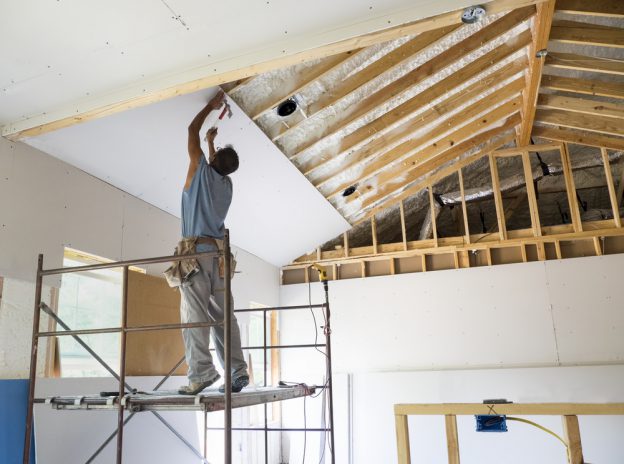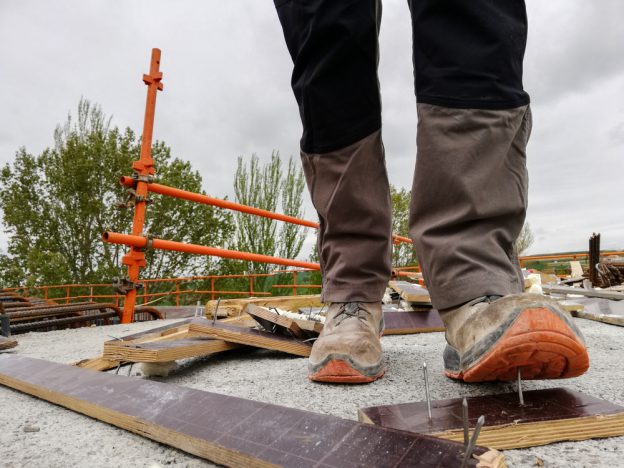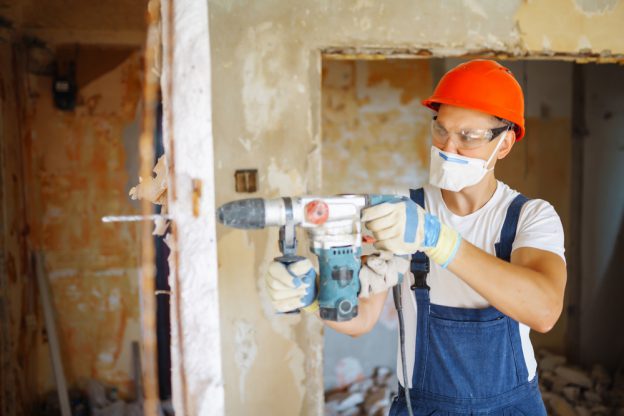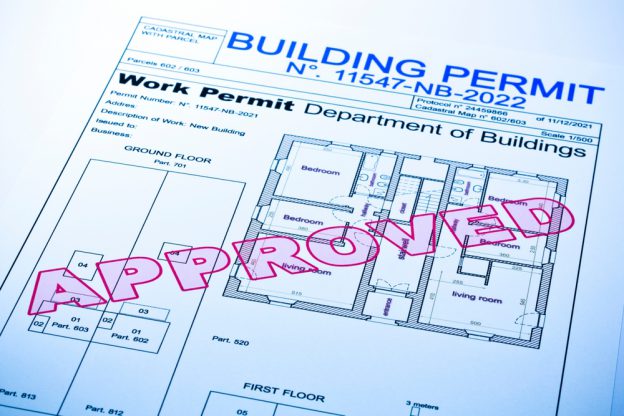Home beautification is always thriving in sunny California. Maybe you just saw a project on TV or on social media and you’re feeling inspired to take it on. Or maybe you’re someone working hard to increase the property value of your home.
Whatever the case may be, you’re thinking about making some home updates. To help you out while you brainstorm, we created this list which covers the most common home renovation projects in California.
Stick with us until the very end to get details about licenses that you definitely want your contractors to have while modernizing your space and optimizing functionality in your home.
Kitchen Remodeling
Ah, yes. The kitchen — the heart of the home. Why do we think that kitchen remodeling is among the most popular home improvement projects in California?
For one thing, interior design trends for kitchen spaces get updated every year. Even if the practical function of a kitchen stays the same, the popularity of these aesthetic details often changes:
- Cabinetry
- Countertops
- Appliances
- Flooring
- Light fixtures
- Modern tech like smart appliances
For another thing, the kitchen tends to be the keeper of a few big-ticket items that require regular updates if you want to keep the whole house feeling current. Water heater, dishwasher, and garbage disposal replacements are three jobs that help a kitchen remodel go a long way.
Bathroom Upgrades
Everyone loves a bathroom upgrade. Updating a bathroom can lead to luxurious, spa-like results or it can be as simple as updating a few outdated fixtures and finishes.
Here are the most popular upgrades we see in bathrooms:
- Installing new showers or tubs
- Replacing old vanities and sinks
- Plumbing additions and replacements in general
- Upgrading to energy-efficient fixtures
- Optimizing storage solutions
Room Additions
Two big issues for California residents are costly real estate and limited space. Room additions are popular home renovation projects because they allow homeowners to get more living space without having to move. Some examples of popular room addition projects are:
- Adding a new bedroom
- Expanding the living room
- Designing a dedicated room for a home office
- Creating a gym space
These projects require a lot of hard work, including but not limited to:
- Flooring
- Carpeting
- Paneling or ceiling tile replacement
- Window or door addition or replacement
While room additions are fun and come with amazing benefits, they sometimes come with red tape. We spoke about this a bit in our Comprehensive Guide to ADU Builds.
The main point we intend to underscore here is that homeowners who are interested in room additions must plan carefully and make sure that their project complies with local zoning regulations and building codes.
Outdoor Spaces
Outdoor living spaces get a lot of love in California thanks to the agreeable climate. This means that property owners put extra effort and focus into outdoor home renovation.
A few popular outdoor upgrades that help homeowners boost their entertainment and hospitality game include:
- Building decks
- Building patios
- Erecting pergolas
- Adding outdoor kitchens
- Adding fire pits
- Installing swimming pools
There are a few landscaping upgrades that are super common in California, such as:
- Adding drought-tolerant plants and sustainable design features
- Adding or replacing a sprinkler system
Roof Replacement is another outdoor upgrade that frequently comes up for property owners and relates very closely to the final item on our list…
Energy Efficiency Improvements
We’ve mentioned it on the blog before, but Californians are leading the charge in sustainable living.
Adopting solar technology at home has been strongly incentivized which means lots and lots of home renovation projects involving the following:
- Installing solar panels
- Upgrading insulation and windows
- Replacing outdated HVAC systems with energy-efficient models
- Implementing smart home tech to monitor and control energy usage
Licensing Requirements for Home Remodeling in California
As you probably already know, any construction project going over $500 in labor and materials requires a contractor’s license from the Contractors State License Board (CSLB).
While you might be fairly familiar with the “B” Class General Building Contractor License, you might not be as familiar with the special class licenses that often come in handy for home remodeling.
In an earlier post on the blog, we discussed the B-2 Remodeling Contractors License in depth and we delved into when or why you might need to obtain one. But here is some home remodeling work that most often requires special class licenses to complete:
Structural Work
- Projects involving structural changes, like adding or removing walls
- Projects that alter a roofline
- Projects that expand the footprint of a home
Electrical, Plumbing, and HVAC
- Any installation or maintenance for electrical, plumbing, or HVAC systems requires special licenses
Any Work Requiring a Permit
- Even for a small kitchen or bathroom renovation — if a permit is required, you’ll want a licensed contractor to help you maintain compliance with building codes and regulations.
DIY Projects vs. Hired Licensed Contractor Work
Home makeover TV shows and all the social media content flaunting the before and afters often make it seem like home renovation is mostly DIY side-project fun.
In reality, there is a line between DIY projects and licensed contractor work that we must acknowledge. Even for minor renovations, we’re better off working with licensed contractors because they can guarantee:
Expertise
- Licensed contractors are experts. They have been tested in the field and they have been literally tested on their knowledge through the contractor’s exam that is required for their license.
Legal Compliance
- Not only do licensed contractors have the skills and expertise, but they are also held accountable by law and must comply with local building codes and permitting requirements, keeping your project safe, efficient, and structurally up to code.
Insurance Coverage
- Licensed contractors carry liability insurance so you’ll be covered if accidents happen.
Conclusion
The most common home renovation projects in California cover a wide range of categories of contractor work.
Whether you want to update a kitchen or a bathroom, or if you want to add living space to your property, the safest and most efficient way to complete your project is with a licensed contractor on your team.
The CSLB is an excellent resource for anyone who wants to expand their knowledge about contractor license classifications or who simply wants to verify that a contractor’s license is valid and active.









